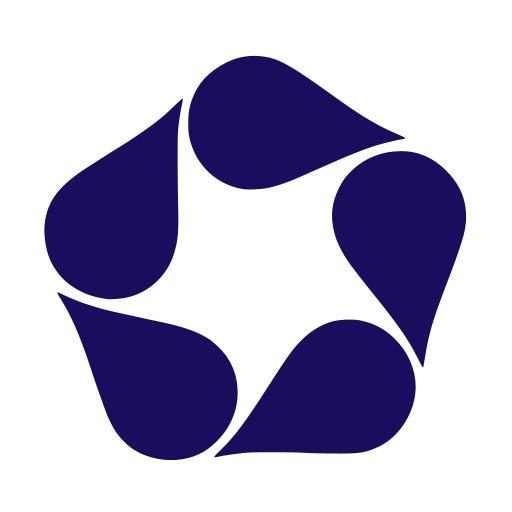World Water Day 2021
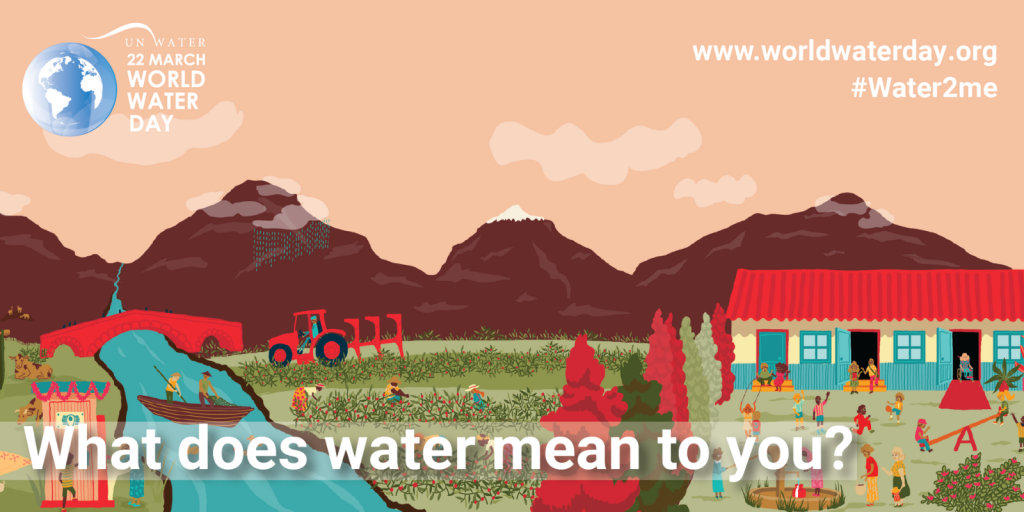
Monday 22nd March 2021 is UN World Water Day and this year’s theme is “Valuing Water“, so we decided to ask some of the RECIRCULATE family in Botswana, Ghana, Malawi, Nigeria, Uganda, United Kingdom and Zambia to tell us how important water is to their home and family life, livelihood, cultural practices, wellbeing or local environment. Here is what they said…
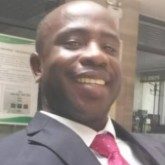 |
Water is an important resource in my local environment. The only source of water in this community is a dam built many years ago. This dam is the only source of water for more than 3 communities with a population of about one thousand people. The dam services the whole ecosystem of the people. It is used for drinking, cooking, washing and watering home vegetable gardens. Can you imagine if the dam dries up during the dry season? Obviously life becomes unbearable and many of the people migrate to other communities with water – it is not only conflict that causes migration but shortages of essential resource can cause migration in my local environment. Personal hygiene of the populace is compromised during this period and disease outbreaks can occur. Water an indispensable resource in my local environment. Dr Stephen Yeboah is a Research Scientist at CSIR-Crops Research Institute in Kumasi, Ghana and is part of the team delivering RECIRCULATE Workpackage 3 – Water for Food Production. |
|
| Water is very important in my culture and religion. Culturally in every home you visit in Northern Nigeria the first thing offered to the guest is water because we believe it is one of the most important things in the life of man. Therefore, every household has a source of water be it a well, pipe borne or borehole. Also, as Muslims we pray 5 times daily and before every prayer we perform ablution using clean water. Because of its importance, every home therefore has provision for water storage ranging from clay pots to drums depending on the size of the household. In the culture in Northern Nigeria when a woman gives birth she baths twice daily with a lot of hot water and herbs to heal her as well as strengthen her from the stress of pregnancy and delivery. Life without water cannot be imagined. Hajara Yahaya Tanko is Director of the Raw Materials Research and Development Council in Abuja, Nigeria. She was a participant in the first RECIRCULATE Knowledge Exchange and Engagement workshop in Ghana in January 2018 and was invited for a residency at Lancaster University in November 2018. |
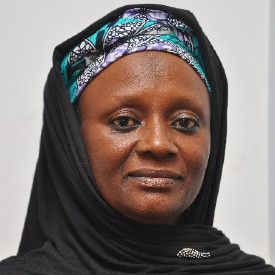 |
|
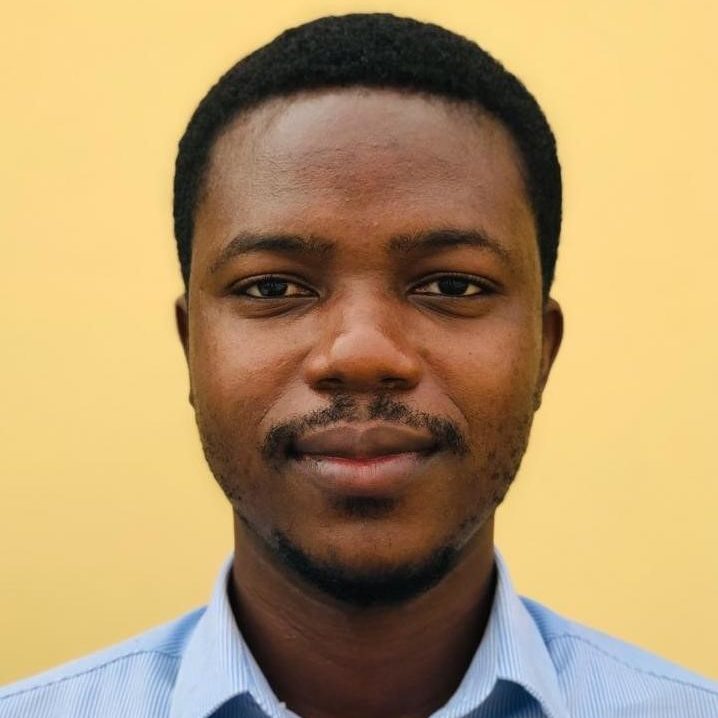 |
Water is a source of life and it can not be substituted. I earn my livelihood through my work associated with water. Through water, I have remained relevant to society while putting food on the table. Without water, I would have been confined to my little corner in the small town of Kpeve in Ghana, but water has granted me the experience of working and visiting all the continents of the world. This World Water Day grants me a good opportunity to declare that water has made me who I have become today. Jacob Amengor is the Chief Coordinator at iWASH Africa based in Accra (Ghana). He was a participant in the first RECIRCULATE Entrepreneurship & Innovation workshop in Ghana in January 2018 and completed a residency at Lancaster University in summer 2019. |
|
| I use rainwater at home in Kampala, Uganda. The water is harvested in a 10,000 litre tank and pumped for use in the toilets, showers and kitchen sink. I recycle the water used for washing clothes for crops in the front-yard garden. I don’t know the cost of domestic water because God pays my bills. Dr Felly Mugizi Tusiime is a Biodiversity and Environment Management Specialist working as Head of the Climate Change and Environmental Sustainability Program at the Africa Innovations Institute, Kampala, Uganda. She participated in the RECIRCULATE Knowledge Exchange & Engagement workshop in Botswana in February 2020. |
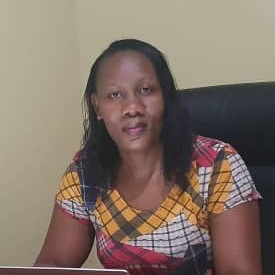 |
|
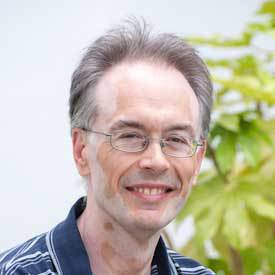 |
My hometown (in Australia) has “run dry”. Two years pass to receive one year’s worth of rainfall. Dams dry up, annual crops (summer vegetables) are not planted & farmers are forced to decide which vines or trees to save by irrigating, and which must be removed to save those remaining. Domestic water supplies are trucked from 60 kilometres away – just to keep water flowing out of kitchen taps. Prices rise & unemployment increases. This is not the town of my childhood – when water was abundant! Prof. Ian Dodd is Professor of Sustainable Agriculture at the Lancaster Environment Centre, Lancaster University (UK) and is co-lead for RECIRCULATE Workpackage 3 – Water for Food Production. |
|
| The value of water is irreplaceable in global economic development. Water plays a vital role in industrialization but the same cannot be said about the opposite because industries tend to generate negative externalities on water bodies. Industrial waste destroys the goose (water) that lays the golden eggs. Water is a valuable resource that is not valued until its value is lost. People with abundant sources of water do not appreciate the value until the available water sources are destroyed. Everyone must be an ambassador to protect the water resources we have. Anthony N-yelkabong is a Research and Engagement Officer at Lancaster University Ghana, Accra, Ghana. He is part of the team delivering Workpackage 1 – Entrepreneurship & Innovation and leads the implementation of the Stimulating Entrepreneurial Thinking in Scientists programme. |
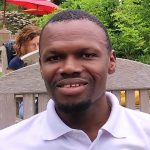 |
|
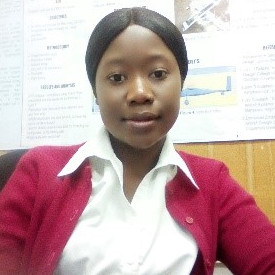 |
Water is the lifeblood of my family and I. It plays a key role in our day to day activities such as drinking, cleaning, cooking or for personal hygiene. Water has also been essential in preventing diseases in my household. Even amidst the pandemic, water has stood out to be an effective tool in combating the coronavirus (COVID-19). No water. No life. Wezi Nyimbili is a lecturer at The Copperbelt University, Kitwe, Zambia and participated in the RECIRCULATE Knowledge Exchange and Engagement workshop in Botswana in February 2020. |
|
| I live in the UK, and like many others, we take water and sanitation for granted. We complain about the weather, the rain, we have floods, which are mostly inconvenient although some are very significant. We have good quality water in our taps, we can wash and bathe at our own convenience. Working on RECIRCULATE and ACTUATE brings home to me that so many do not have the basic necessity of good drinking water and sanitation. If RECIRCULATE and ACTUATE can make any improvement to their lives then I can sit and enjoy what I have knowing that we have helped. Prof. Roger Pickup is a Professor in the Department of Biomedical & Life Sciences at Lancaster University (UK) and is co-lead for RECIRCULATE Workpackage 2 – Water for Health & Sanitation and leads Workpackage 5 – Water, Pathogens & Health |
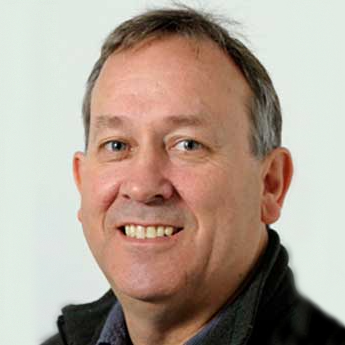 |
|
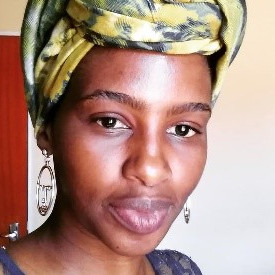 |
Water is the source of life, without water there’s no life. Water is essential for survival also to sustain livelihoods of people. In my home, water is important for health benefits, sanitation and domestic purposes such as cooking, drinking and washing. Rural communities in Botswana rely on water for agriculture (farming, animal rearing and fishing). Water is the driving force for all nature hence it has to be valued. Naledi Kefitile is a research officer at Botswana International University of Science and Technology based in Palapye, Botswana. She joined the RECIRCULATE Entrepreneurship & Innovation workshop in Kitwe, Zambia in 2019 and later that year completed a residency at Lancaster University. |
|
| It’s impossible for my organization to exist without water. In fact, we wouldn’t run projects because to recycle, we need water. We once didn’t have running water due to pollution by some unscrupulous youths in September, 2019 and our recycling was reduced by 95%. We simply can’t do without water. Stephen Chiunjira is Executive Director at Our World International based in Lilongwe, Malawi. He joined the RECIRCULATE Entrepreneurship & Innovation workshop in Kitwe, Zambia in 2019 and later that year completed a residency at Lancaster University. In early 2020 he joined the RECIRCULATE training team in Nairobi, Kenya to help deliver the final RECIRCULATE workshop. |
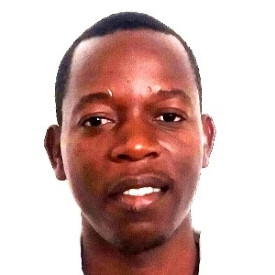 |
|
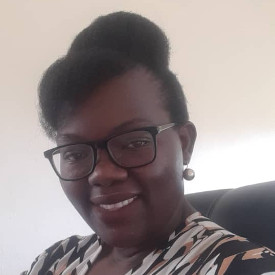 |
Everything about our daily lives in my home and at work revolves around the use of water; I wake up in the morning and brush my teeth, bath, take a cup of tea, drink 4 to 6 glasses, wash hands all the time and prepare food using water. We can’t really do without these… so we can’t do without water. The value of water is more appreciated when our water company announces that there will be no water running even for just a few hours! It becomes a terrible experience and we go round with buckets looking for water… no wander it’s called life… yes water is life! Mercy Mbamba Fandamu is Head of Research Development (Food and Agriculture) at The Copperbelt University, Kitwe (Zambia). She joined the RECIRCULATE Entrepreneurship & Innovation workshop in Kitwe, Zambia in 2019 and later that year completed a residency at Lancaster University. |
|
| I remember, as a child, walking uphill back to my grandmother’s house in rural Ireland with a bucket of clear, cool well water; the weight, the feeling of the handle cutting into my hand, walking quickly, stopping frequently to rest. That water felt precious and it’s hard to remember that sense of value these days when I’m used to turning on the tap and knowing I can drink the water. Perhaps those memories help explain why I’ve now got not one, but two water-butts in my garden, collecting rainwater and meaning I can avoid using potable water on my strawberry plants. Dr Paul McKenna is the RECIRCULATE Project Manager, based at the Lancaster Environment Centre, Lancaster University (UK). |
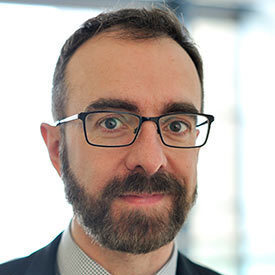 |
|
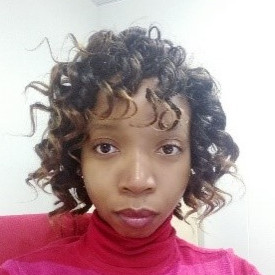 |
There is nothing more precious which supports life on earth than water. I was taught in school that it is the universal solvent, but I’ve come to realize that it is really the universal remedy, healing numerous ailments. Not only does it give life, it supports all its important aspects, even recreation. Mpho Rapoo is a Teaching Instructor at the Botswana International University of Science and Technology based in Palapye, Botswana. She participated in the RECIRCULATE Knowledge Exchange & Engagement workshop in Lilongwe, Malawi in 2019 and later that year completed a residency at Lancaster University. In early 2020 she joined the RECIRCULATE training team in Gaborone, Botswana to help deliver the last edition of RECIRCULATE KE workshop. |
|
| To be quite honest growing up I did not value water because I grew up in a country (UK) where water was always provided, but as I travelled to lesser privileged countries working on water research projects, I have come to the understanding that water for me is Earth’s most precious & valuable resource. Jahmele Stone is Regional Director for H2O Solutions Tech Ltd, based in Accra (Ghana). He participated in the RECIRCULATE Entrepreneurship & Innovation workshop in Accra in 2018. |
 |
|
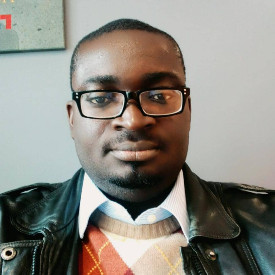 |
Here in Nigeria we have come to the realisation through personal experiences that we can live without electricity but we can hardly live for a day without water. Water is one of the vital elements of nature, without it life cannot exist nor sustain and grow. Without it, daily existence and chores become arduous. Its essence is mainly the refreshment it gives both on the inside and outside of our bodies, especially after a hard day out. Peter Akhator is a lecturer at the University of Benin, Nigeria. He attended the RECIRCULATE Workpackage 3 – Water for Energy Production workshop in Ghana in January 2018 and was part of the first cohort of Lancaster residencies in May of that year. |
|
